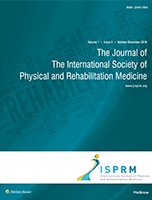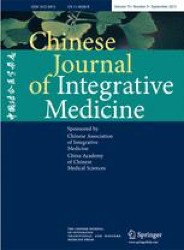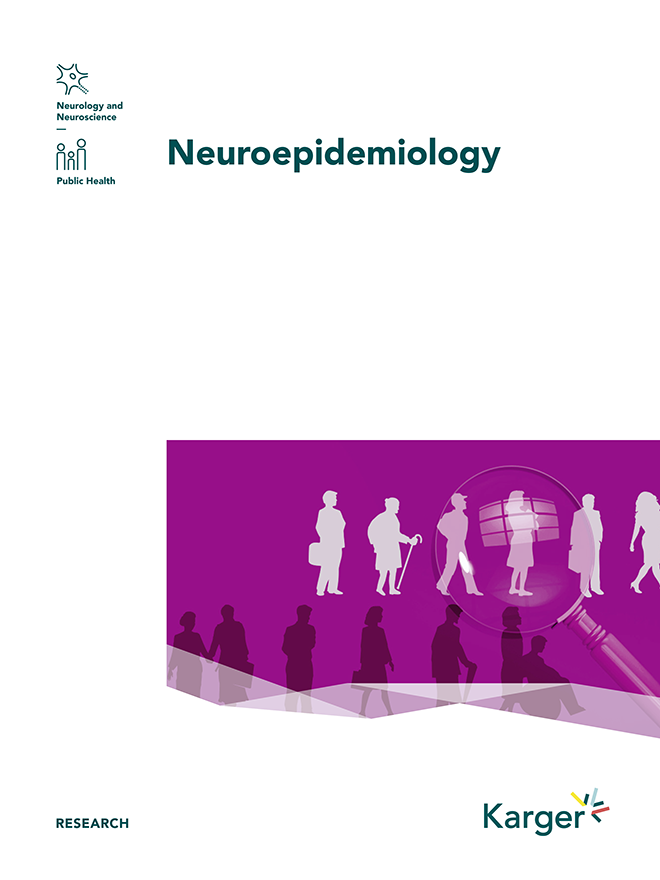Dysphagia
How to submit an article:
- Registered users can submit any published journal article that has a unique DOI (Digital Object Identifier) name or link to Research Hub.
- For example, you can paste the full DOI link:
https://doi.org/10.1109/5.771073or just the DOI name:10.1109/5.771073into the field above and click submit. - The person who is first to submit a valid article to Research Hub will forever be credited for it, and every article submission earns you +6 Research Points.
Published research studies are articles that present the findings of original research that has undergone a peer-review process and has been made publicly available in scholarly journals, books or other media.

Acupuncture for cancer-related conditions: An overview of systematic reviews
2022 Nov Phytomedicine Zhang X, Hou W, Pu F, Wang X, Wang Y, Yang M, et al.
Systematic Review Cancer-related conditions AcupunctureAcupuncture shows positive effects on cancer-related issues; research calls for further exploration of acupuncture's efficacy and safety, especially for conditions like depression, offering further potential support for cancer survivors

The Effectiveness of Acupuncture for Dysphagia after Stroke: A Systematic Review and Meta-Analysis
2021 Jan 19 Evidence-Based Complementary and Alternative Medicine Zhong, L., Wang, J., Li, F., et al.
Systematic Review Meta-Analysis Stroke Rehabilitation DysphagiaAcupuncture, when combined with other treatments, is an effective therapy for treating swallowing difficulties experienced after a stroke.

An overview of acupuncture in stroke recovery: A narrative review
2020 Sep 1 Journal of the International Society of Physical and Rehabilitation Medicine Cao N, Nguyen B, Li S, Lamba R, Hafner R, Li S
Review Article Stroke Rehabilitation
Acupuncture Treatment for Post-Stroke Dysphagia: An Update Meta-Analysis of Randomized Controlled Trials
2018 Jul 18 Chinese Journal of Integrative Medicine Li, Lx., Deng, K. & Qu, Y.
Meta-AnalysisOur meta-analysis provides a new evidence supporting the efficacy and safety of acupuncture in treatment to post-stroke dysphagia in short-term compared with rehabilitation or medication.

Systematic Review on Acupuncture for Treatment of Dysphagia after Stroke
2017 Aug 9 Evidence-Based Complementary and Alternative Medicine Ye, Q., Xie, Y., Shi, J., et al.
The result showed that the acupuncture group was better than the control group in terms of the efficacy rate of dysphagia after stroke. And the combining result of those researches using the blind method was more strong in proof. Strict evaluation standards and high-quality RCT design are necessary for further exploration.
Systematic Review Dysphagia Stroke RehabilitationResearch insights are moderated by the Research Hub team and offer an at-a-glance overview of interesting research findings.

2022 Phytomedicine
Acupuncture shows positive effects on cancer-related issues; research calls for further exploration of acupuncture's efficacy and safety, especially for conditions like depression, offering further potential support for cancer survivors
Systematic Review Acupuncture Cancer-related conditions
Acupuncture for cancer-related conditions: An overview of systematic reviews
Zhang X, Hou W, Pu F, Wang X, Wang Y, Yang M, et al.

2021 Evidence-Based Complementary and Alternative Medicine
Acupuncture, when combined with other treatments, is an effective therapy for treating swallowing difficulties experienced after a stroke.
Systematic Review Stroke Rehabilitation
The Effectiveness of Acupuncture for Dysphagia after Stroke: A Systematic Review and Meta-Analysis
Zhong, L., Wang, J., Li, F., et al.

2018 Chinese Journal of Integrative Medicine
Our meta-analysis provides a new evidence supporting the efficacy and safety of acupuncture in treatment to post-stroke dysphagia in short-term compared with rehabilitation or medication.
Meta-Analysis
Acupuncture Treatment for Post-Stroke Dysphagia: An Update Meta-Analysis of Randomized Controlled Trials
Li, Lx., Deng, K. & Qu, Y.

2014 Neuroepidemiology
Acupuncture may be effective for treating poststroke neurological impairment and dysfunction such as dysphagia.
Systematic Review
Overview of Systematic Reviews and Meta-Analyses of Acupuncture for Stroke
Zhang J. Wang D. Liu M.
Review Articles
Review articles summarise and critically evaluate the current state of research on a specific topic or field by synthesising multiple primary research studies.

Acupuncture for cancer-related conditions: An overview of systematic reviews
2022 Nov Phytomedicine Zhang X, Hou W, Pu F, Wang X, Wang Y, Yang M, et al.
Systematic Review Cancer-related conditions AcupunctureAcupuncture shows positive effects on cancer-related issues; research calls for further exploration of acupuncture's efficacy and safety, especially for conditions like depression, offering further potential support for cancer survivors

The Effectiveness of Acupuncture for Dysphagia after Stroke: A Systematic Review and Meta-Analysis
2021 Jan 19 Evidence-Based Complementary and Alternative Medicine Zhong, L., Wang, J., Li, F., et al.
Systematic Review Meta-Analysis Stroke Rehabilitation DysphagiaAcupuncture, when combined with other treatments, is an effective therapy for treating swallowing difficulties experienced after a stroke.

An overview of acupuncture in stroke recovery: A narrative review
2020 Sep 1 Journal of the International Society of Physical and Rehabilitation Medicine Cao N, Nguyen B, Li S, Lamba R, Hafner R, Li S
Review Article Stroke RehabilitationNarrative review — 26 May 2021

Systematic Review on Acupuncture for Treatment of Dysphagia after Stroke
2017 Aug 9 Evidence-Based Complementary and Alternative Medicine Ye, Q., Xie, Y., Shi, J., et al.
The result showed that the acupuncture group was better than the control group in terms of the efficacy rate of dysphagia after stroke. And the combining result of those researches using the blind method was more strong in proof. Strict evaluation standards and high-quality RCT design are necessary for further exploration.
Systematic Review Dysphagia Stroke Rehabilitation
Overview of Systematic Reviews and Meta-Analyses of Acupuncture for Stroke
2014 Jan Neuroepidemiology Zhang J. Wang D. Liu M.
Systematic Review Meta-Analysis DysphagiaAcupuncture may be effective for treating poststroke neurological impairment and dysfunction such as dysphagia.
Clinical Trials
Clinical trials are research studies that involve people and are conducted to evaluate the safety and efficacy of new treatments or interventions, such as drugs, medical devices, or behavioural therapies.
Study Protocols
Published study protocols are detailed plans that outline the objectives, methodology, statistical analyses, and organisation of a research study that have been made publicly available for others to review and use as a reference.
Presentation Slides

Systematic Review
Acupuncture shows positive effects on cancer-related issues; research calls for further exploration of acupuncture's efficacy and safety, especially for conditions like depression, offering further potential support for cancer survivors
Zhang X, Hou W, Pu F, Wang X, Wang Y, Yang M, Cheng K, Wang Y, Robinson N, Liu J

Systematic Review
Acupuncture, when combined with other treatments, is an effective therapy for treating swallowing difficulties experienced after a stroke.
Zhong, L., Wang, J., Li, F., Bao, X., Liu, H., & Wang, P.

Meta-Analysis
Our meta-analysis provides a new evidence supporting the efficacy and safety of acupuncture in treatment to post-stroke dysphagia in short-term compared with rehabilitation or medication.
Li, Lx., Deng, K. & Qu, Y.

Systematic Review
Acupuncture may be effective for treating poststroke neurological impairment and dysfunction such as dysphagia.
Zhang J. Wang D. Liu M.
Executive Summary
Write an executive summary in the form of a blog article on the topic of "Research into Chinese medicine treatment for Dysphagia" summarising the research below and using language that can be easily understood by patients and avoiding medical jargon using a professional and caring tone of voice.
Write an executive summary in the form of a blog article on the topic of "Researched Chinese medicine treatments for Dysphagia" summarising the research below in an objective and easy to understand way, and using language that can be easily understood by patients. Group the article into Chinese medicine treatments first, followed by nutrition and other treatments. Avoid using medical jargon and use a professional and caring tone of voice.
Write me a concise but easy to understand executive summary on the topic of "Chinese medicine treatments for Dysphagia" based on the following research that I will give you. Your summary should be 2 paragraphs long in Australian English spelling and include references to the studies.
A Systematic Review published in 2022 in the journal Phytomedicine found that Acupuncture shows positive effects on cancer-related issues; research calls for further exploration of acupuncture's efficacy and safety, especially for conditions like depression, offering further potential support for cancer survivors This review summarizes evidence from 51 systematic reviews on acupuncture for cancer-related conditions. Acupuncture was found to have positive effects on various conditions such as cancer-related pain, fatigue, insomnia, nausea, and more. The methodological quality of the reviews was generally low, and some biases were identified. Acupuncture was considered safe, with only mild adverse events reported. In clinical practice, acupuncture can be a beneficial option for cancer survivors for certain conditions.
A Systematic Review published in 2021 in the journal Evidence-Based Complementary and Alternative Medicine found that Acupuncture, when combined with other treatments, is an effective therapy for treating swallowing difficulties experienced after a stroke. In the methodology used for this study, the researchers examined various English and Chinese databases up to March 2020, focusing on randomized controlled trials that used acupuncture or combined acupuncture with other treatments to help stroke patients with dysphagia. Two authors independently assessed and extracted the data. For quality control, the bias risk assessment tool recommended by the Cochrane Collaboration was used to assess each selected study. The researchers then conducted a meta-analysis using RevMan 5.3 software and calculated pooled analyses by the mean difference. Results showed that when compared to a control group, patients who underwent acupuncture combined with other treatments experienced an improvement in their ability to swallow as measured by different scales and tests. No serious adverse effects were reported in the studies, indicating that acupuncture is not only effective but also safe as a treatment method for dysphagia following stroke.
A Meta-Analysis published in 2018 in the journal Chinese Journal of Integrative Medicine found that Our meta-analysis provides a new evidence supporting the efficacy and safety of acupuncture in treatment to post-stroke dysphagia in short-term compared with rehabilitation or medication. Twenty-nine RCTs comprising 2,190 patients were included. The included studies had a medium quality grade based on the Consolidated Standards of Reporting Trials (CONSORT) and Standards for Reporting Interventions in Clinical Trials of Acupuncture (STRICTA) checklist. Acupuncture therapy provided a higher effective rate compared with nonacupuncture treatments. Subgroup and meta-regression analyses suggested that acupuncture intensity and measurement method were main sources of heterogeneity and resulted in a significant difference for pooled effect size. No severe adverse events were documented in these RCTs.
A Systematic Review published in 2014 in the journal Neuroepidemiology found that Acupuncture may be effective for treating poststroke neurological impairment and dysfunction such as dysphagia. The current evidence suggests that acupuncture is not effective for death or dependency/disability. However, acupuncture may be effective for treating poststroke neurological impairment and dysfunction, particularly poststroke dysphagia, although these findings require verification in rigorous RCTs. Future studies should place more emphasis on the efficacy of acupuncture for treating poststroke neurological impairment and dysfunction and on the development of more precise tools for assessing these outcomes.
Moderation Tools
Topic
Sign In
Users not signed in are limited to viewing the 5 most recent items of content.
Narrative review — 26 May 2021